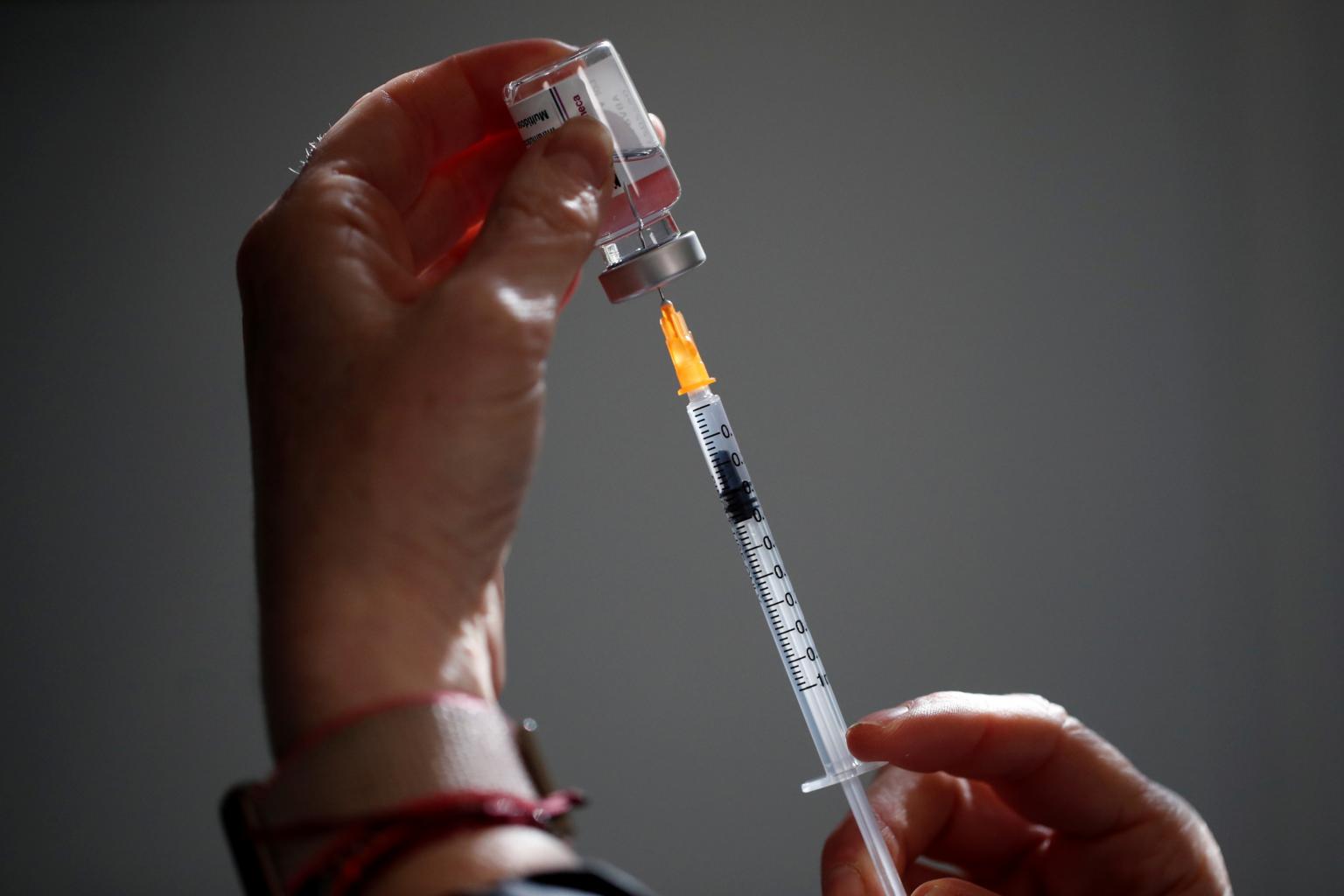France's under-55s given AstraZeneca Covid-19 vaccine to get different second dose
Sign up now: Get ST's newsletters delivered to your inbox

Europe's medicines regulator said the AstraZeneca vaccine could cause very rare blood clots.
PHOTO: REUTERS
PARIS (AFP) - The French authorities are set to rule that under-55s who received a first injection of the AstraZeneca Covid-19 vaccine can be given a jab from a different producer for their second dose, Health Minister Olivier Veran said on Friday (April 9).
France's national health authority, Haute Autorite de Sante (HAS), last month said that the AstraZeneca vaccine should be given only to those aged 55 and over, due to the reports of potentially deadly blood clots in a very small number of younger people vaccinated.
Officials in France initially said that those given the AstraZeneca jab in a first dose should go ahead with the second jab even if aged below 55, but Dr Veran, a 41-year-old neurologist, indicated that HAS would change the advice.
"This will normally be confirmed today, it is totally logical," said Dr Veran, with HAS due to give a news conference at 0800 GMT.
France has been injecting health workers as a priority group in the vaccination drive, meaning that many younger people have already received the AstraZeneca jab due to their work.
As Dr Veran noted, they included the minister himself, who was given the AstraZeneca vaccine live on television on Feb 8.
"It is completely consistent to say that we do not recommend the AstraZeneca vaccine to people under 55 years of age while we learn more," he said.
"Therefore, if you have received a first injection and are under 55 years old, you will be offered another vaccine 12 weeks after the first injection," he added.
Europe's medicines regulator said this week the AstraZeneca vaccine could cause very rare blood clots among some recipients, prompting several countries to to scale up restrictions on the jab.
There are several clinical trials under way looking at the efficacy of combining two types of coronavirus vaccine - testing the technique known as heterologous prime-boosting.
Experts say the theory is sound and, as with some other diseases, it could help convey effective immunity.
"Based on previous studies which combine different vaccine types, a combination of the AstraZeneca and Pfizer-BioNTech vaccines is likely to be safe but it's important that this is tested in the context of a clinical vaccine trial," said Immunology professor Helen Fletcher at the London School of Hygiene and Tropical Medicine.


